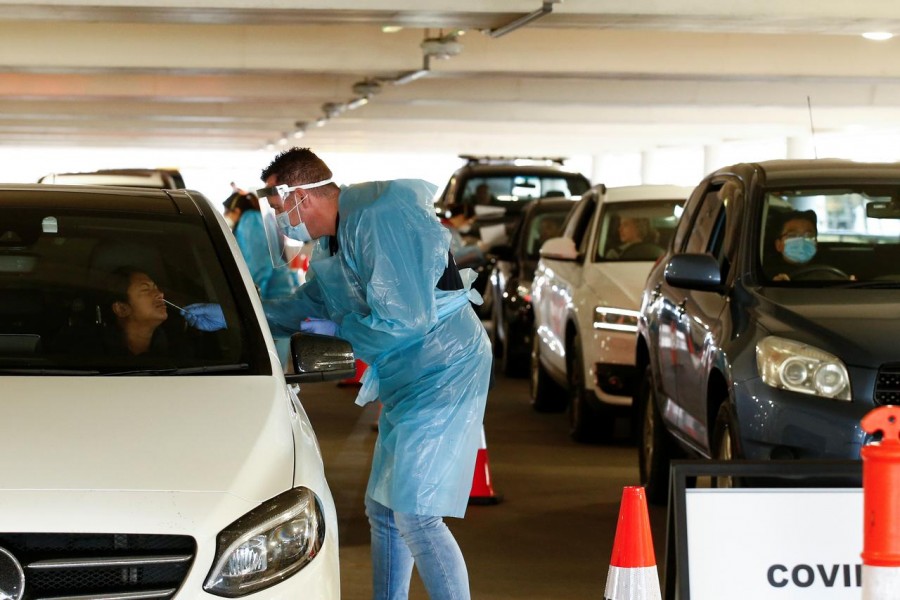Australia’s second most populous state said on Monday it is considering reimposing social distancing restrictions after the country reported its biggest one-day rise in new coronavirus infections in more than two months.
While many states and territories have yet to report their latest numbers, Victoria said it has detected 75 cases in the past 24 hours - enough to make it Australia’s biggest daily outbreak since April 11.
The growing figures have stoked fears of a second wave in Australia after several weeks of fewer than 20 new cases a day.
As cases have mounted, Victoria has embarked on a massive testing regime and the state’s chief health officer said the state is considering reimposing social distancing restrictions.
“Changing the law is something we have to consider because we have to do whatever is required to turn this around,” Brett Sutton told reporters in Melbourne, referring to questions about localised lockdowns.
In May, Victoria - home to more than 6 million people - began lifting restrictions imposed a month earlier to slow the spread of the virus.
It has pledged to remove the bulk of restrictions by the end of July.
The restrictions, including forcing restaurants and cafes to offer only takeaway services, shutting schools and halting sports proved successful in slowing the spread of Covid-19.
But it was a hammer blow to Australia’s economy, which is heading into its first recession in three decades as the unemployment rate hits a 19-year high of 7.1 per cent.
Prime Minister Scott Morrison has called on states to continue easing restrictions, insisting the country’s economy can not remained idled.
Morrison ruled out a blanket extension of a A$60 billion ($41.1 billion) wage subsidy scheme beyond its scheduled end in September.
“It can’t be sustained forever,” Morrison said, adding that another phase of stimulus at the end of September would be targeted “to the people who need it most”.
The Grattan Institute, an independent think tank, said in a report published on Monday the government needs to inject up to A$90 billion more in stimulus, including extending its wage subsidy programme.
That stimulus was needed before the annual budget in October to bring the unemployment rate down to about 5 per cent by the middle of 2022, the report said.


